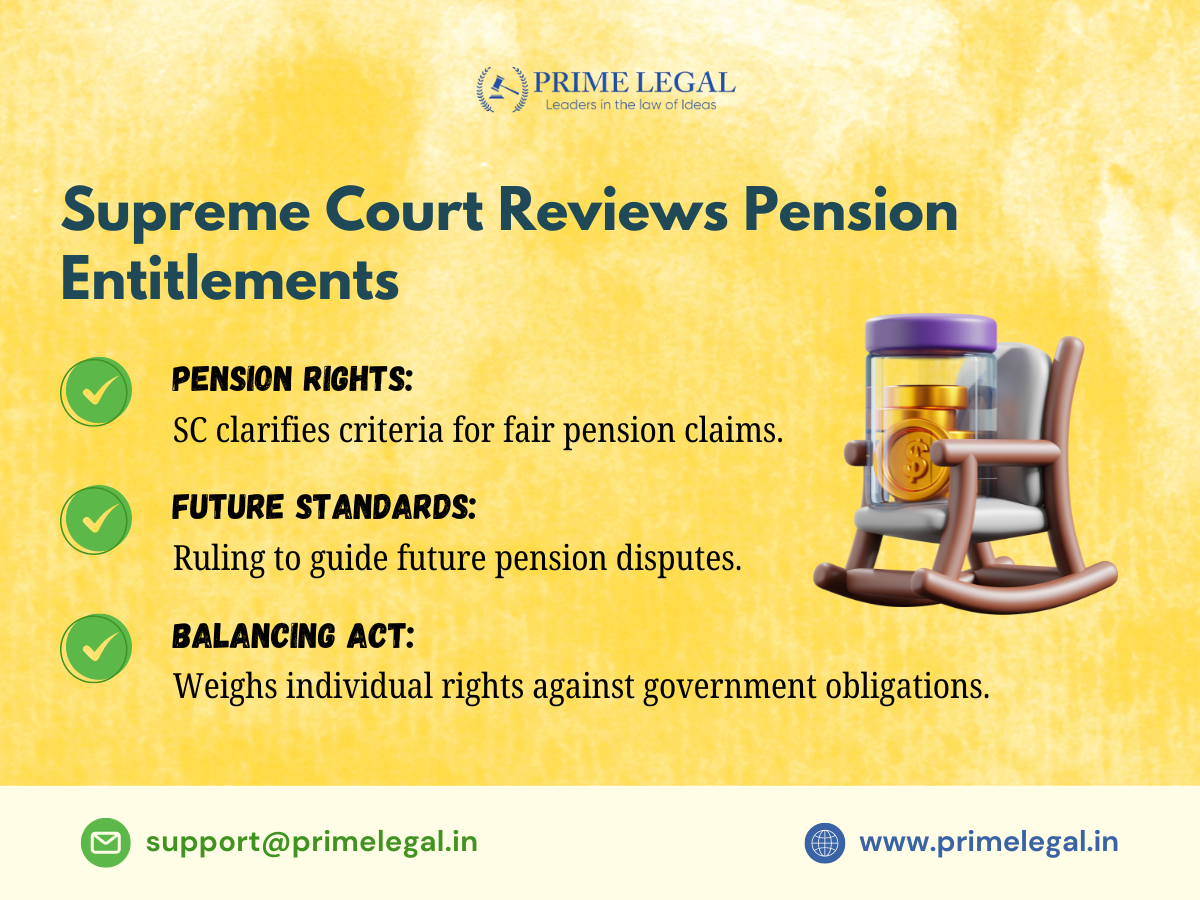CASE NAME : : STATE OF ODISHA AND OTHERS VS BANAMALI SAMAL AND OTHERS.
W.A. No.: 1179 of 2023
DATE :20 -10-2022
QUORUM : MS RAMAN and Chakradhari Sharan Singh
FACTS OF THE CASE
In Banamali Samal and Others vs. State of Odisha and Others, the appellants, Banamali Samal and other employees, were engaged under the Micro Project Scheme as part of the Integrated Tribal Development Programme in Odisha. They were employed by societies established under the Societies Registration Act, receiving salaries and benefits similar to government employees. However, they were not officially recognized as government servants under the Odisha Civil Services (Pension) Rules, 1992. Upon reaching retirement, the appellants sought pensionary benefits based on their long years of service, arguing that their contributions warranted such recognition. The State of Odisha denied their claims, asserting that the appellants were not government employees and thus ineligible for pensions. This led to a legal challenge, where the appellants contested their employment status, prompting the case to be brought before the High Court for resolution.
ISSUE
The primary issue in Banamali Samal and Others vs. State of Odisha and Others was whether the appellants, who were employed under the Micro Project Scheme, were entitled to pension benefits despite their non-recognition as government employees.
LEGAL PROVISIONS
The case primarily invoked the Odisha Civil Services (Pension) Rules, 1992, which stipulate the conditions for pension eligibility, alongside Article 14 of the Constitution of India, which guarantees equality before the law.
THE CONTENTION IF THE APPELLANT
The appellants, representing the State of Odisha and its various departments, contended that the respondents, who were employees of Micro Projects under the Integrated Tribal Development Agency (ITDA), were not entitled to pensionary benefits under the Odisha Civil Services (Pension) Rules, 1992. They argued that these Micro Projects function as independent societies registered under the Societies Registration Act, which meant that the employees did not qualify as government servants. The appellants cited a 2007 government communication that explicitly stated that employees of these projects were ineligible for pensions and contended that a subsequent 2017 communication referenced by the respondents was being misinterpreted. Furthermore, they pointed out that the respondents had filed their claims nearly a decade late, questioning the validity of their late challenge.
THE CONTENTION OF THE RESPONDENT
The respondents, led by Banamali Samal, asserted that they were indeed entitled to pensionary benefits, arguing that their recruitment was conducted under the authority of the District Collector, who served as the ex-officio Chairman of the Micro Projects, thereby aligning their employment with that of government servants. They relied on a 2017 government letter which they interpreted as supportive of their claim for pensions. Additionally, the respondents highlighted that regular deductions for the General Provident Fund (GPF) and Group Insurance Scheme (GIS) were made from their salaries, further reinforcing their argument that they should be treated as government employees entitled to pension benefits.
CONCLUSION
In conclusion, the case of Banamali Samal and Others vs. State of Odisha and Others revolves around the eligibility of Micro Projects employees for pensionary benefits under the Odisha Civil Services (Pension) Rules, 1992. The appellants argue that these employees are not government servants and therefore do not qualify for pensions, citing their independent status as societies under the Societies Registration Act. In contrast, the respondents contend that the employment structure and salary deductions align these employees with government service, entitling them to pension benefits. The court’s decision will clarify the definition of employee status and significantly impact the rights of these employees, establishing a precedent for similar future cases.
“PRIME LEGAL is a full-service law firm that has won a National Award and has more than 20 years of experience in an array of sectors and practice areas. Prime legal falls into the category of best law firm, best lawyer, best family lawyer, best divorce lawyer, best divorce law firm, best criminal lawyer, best criminal law firm, best consumer lawyer, best civil lawyer.”
WRITTEN BY : ABHISHEK AIYAPPA.


